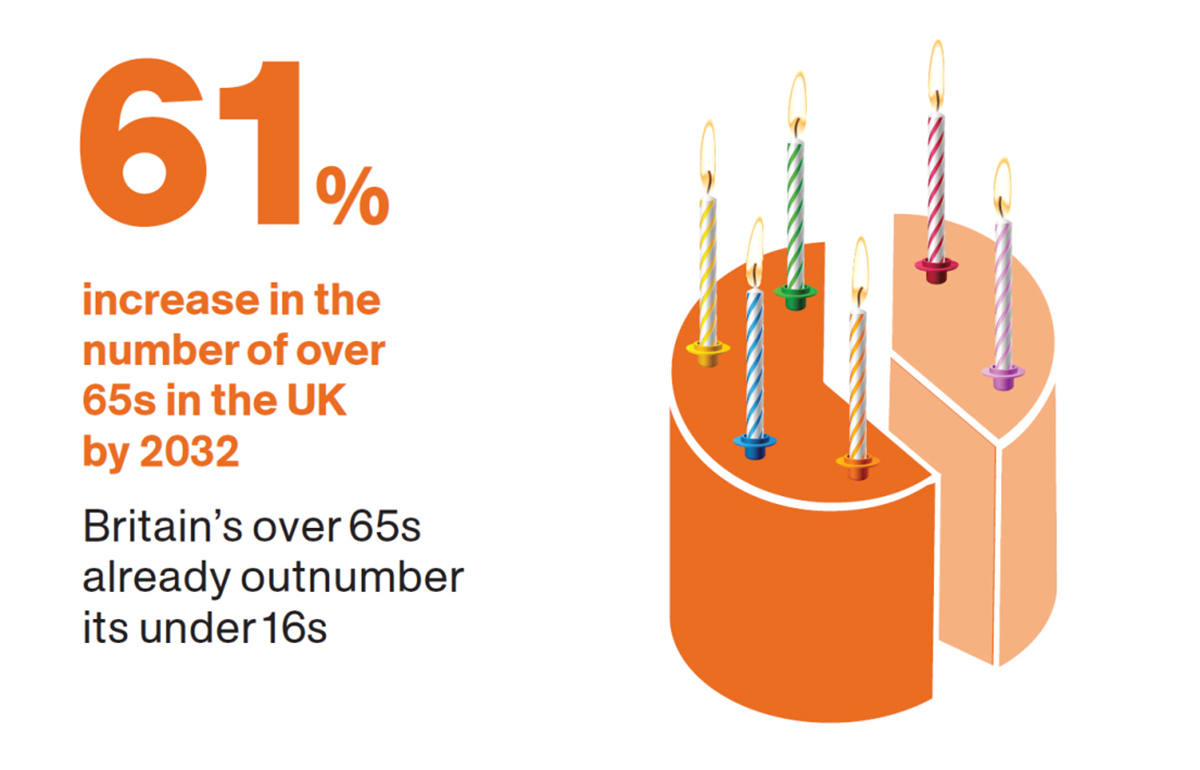Brand Alert – Ignore the ageing population at your peril
March 2018

March 2018

Founder of Purity, Rob Quinn looks at the importance for brands of ensuring their customer and brand experience strategies take the UK’s ageing population into account.
My parents are in their early to mid-70’s, they eat out regularly, often several times a week and travel abroad three to four times per year. They use loyalty cards at Waitrose, John Lewis and Tesco, amongst others. As consumers they own an iPad, Alexa Dot, Kindle and a laptop, whilst both own a smartphone. They are brand loyal, to a point although are susceptible to a price promotion from time to time – it’s fair to say, “they love a deal”. They lament the demise of retail banking and refuse to use online banking. Despite both having smartphones, they often have them switched off and object to having to call mobile phones from their home landline due to cost. Until recently they were BT Sport subscribers until the process of broadband and TV options became both costly and complicated. In spite of their regular breaks overseas they will only use budget airlines as a last resort and refuse to pay for allocated seats, being prepared to not even sit together on flights if this means not giving any additional revenue to the likes of Ryanair. They both refuse to use the self-scan in supermarkets, preferring a checkout operative do this for them. However, they both vote with their feet and their wallet. It’s considered almost a cardinal sin for any retailer, restaurateur, bank, airline, hotel, or call centre (take note British Gas), to give them poor customer service. Views are aired publicly in their various social circles and this word of mouth no doubt carries influence amongst their peers who I can imagine shake their heads in collective disappointment in the decline of standards in the UK.

My parents along with their friends and acquaintances represent an increasingly influential section of the British population. According to the ONS (Office for National Statistics), in the UK those aged 65+ now out-number those aged under 16 and totals in excess of 10 million, with this number expected to double by 2035[i]. In some, but not all cases, it can be argued that this demographic is both cash-rich and time-rich. A forecast by Nielsen[ii] predicts that by 2020 global spending by households headed by over-60s could amount to $15tn, twice as much as in 2010. It is a section of the population that brands who fail to acknowledge and accommodate, threaten to alienate and lose as valuable customers.
When sitting in agency brainstorms responding briefs and devising strategic and creative solutions we often see brands seeking to attract urbanised, metropolitan 18-34 year olds. It appears to be increasingly rare to consider those people who are aged 65+ and yet, the figures tell us that this group of the population are in a position to carry commercial influence with brands. At Purity we already work with and represent a number of brands who could consider the age and demographic of their consumers to be something of a broad church, Samsung and BMW being just two examples. It is therefore beholden on us as an experiential agency to advise and consult our clients on how best to create and deliver campaigns that can be personalised where necessary and ensure that we not only acknowledge more mature consumers but seek to embrace them and ensure that their influence and spending power sits with our clients.
There are a number of aspects to plan for when considering mature consumers;
[i] www.thedrum.com
[i] www.ons.gov.uk
[ii] www.economist.com
To understand how Purity can shape the experiential marketing strategy for your brand, please contact our team today.